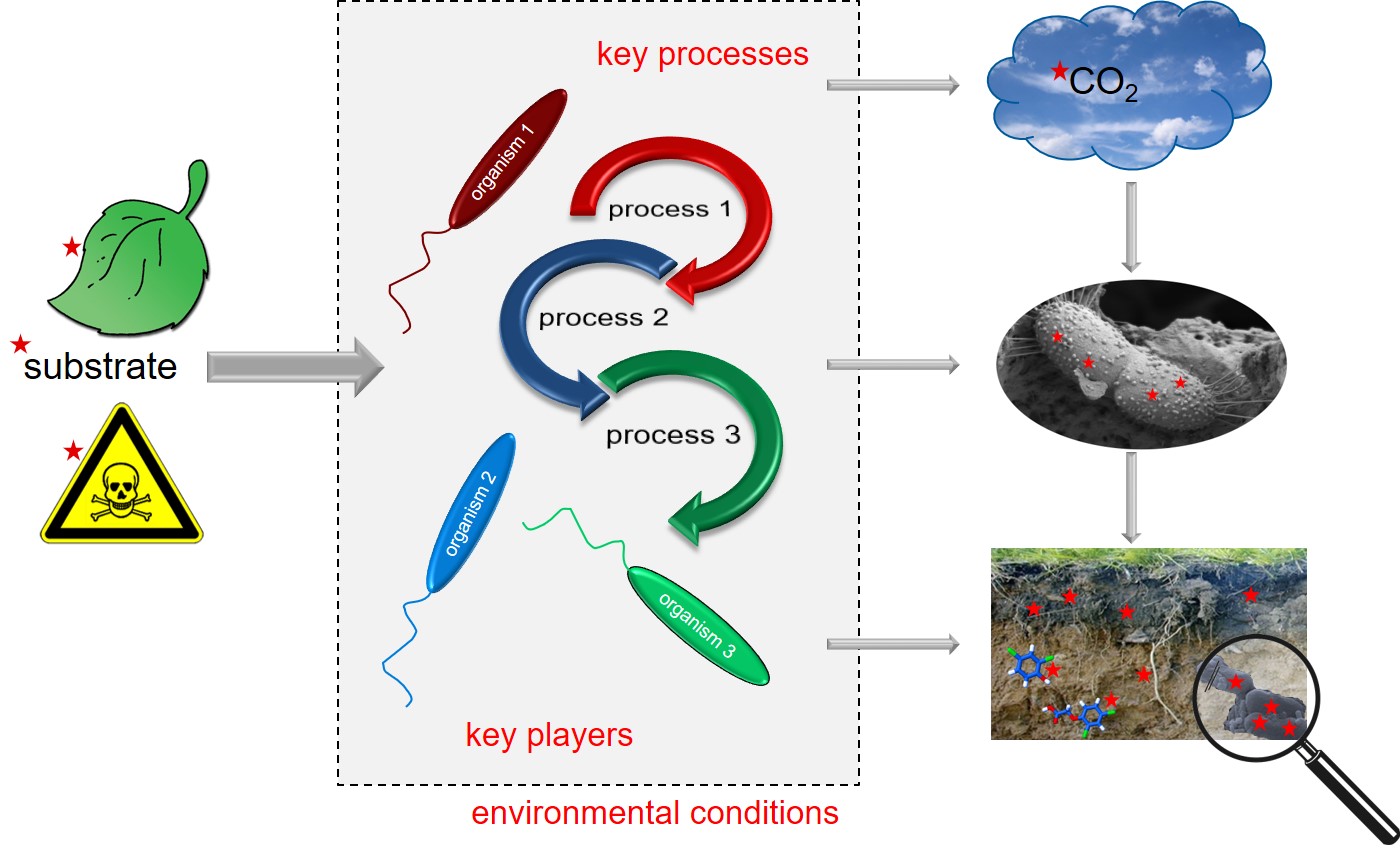Microbial soil and sediment processes
Research group Dr. Anja Miltner
Research focus
 Studying microbial transformations in complex soil and sediment systems using isotope labelled tracer compounds
Soils and sediments provide important ecosystem services as carbon retention and provision of food. They are also an important element of global biogeochemical cycles and thus substantially contribute to controlling atmospheric CO2 concentrations. These services largely depend on microbial C and N cycling in soils and sediments. For sustainable land management targeting at CO2 reduction and safeguarding food supply and water resources, we need thorough understanding of these processes.
Studying microbial transformations in complex soil and sediment systems using isotope labelled tracer compounds
Soils and sediments provide important ecosystem services as carbon retention and provision of food. They are also an important element of global biogeochemical cycles and thus substantially contribute to controlling atmospheric CO2 concentrations. These services largely depend on microbial C and N cycling in soils and sediments. For sustainable land management targeting at CO2 reduction and safeguarding food supply and water resources, we need thorough understanding of these processes.
Research is performed by tracing the fate of natural and anthropogenic compounds in such environmental systems, in particular, we aim at understanding how microbial biomass contributes to natural organic matter formation and stabilisation and on the fate of contaminants with special focus on pesticides and the formation of non-extractable residues. Of particular interest are processes occurring in microhabitats that are relevant on larger scales.
We apply isotope labelling to trace the fate of selected compounds and to set up mass balances including information about the contribution of biomass components to soil organic matter and the formation of non-extractable residues. General focus of the experiments is to identify key processes and to link microbial activity to energetics and stoichiometry of degradation and turnover processes. Overall, we aim to provide options for sustainable management of soils and sediments for safeguarding ecosystem functioning.
Members of the research group
Alina Rupp
Felicitas Ehme
